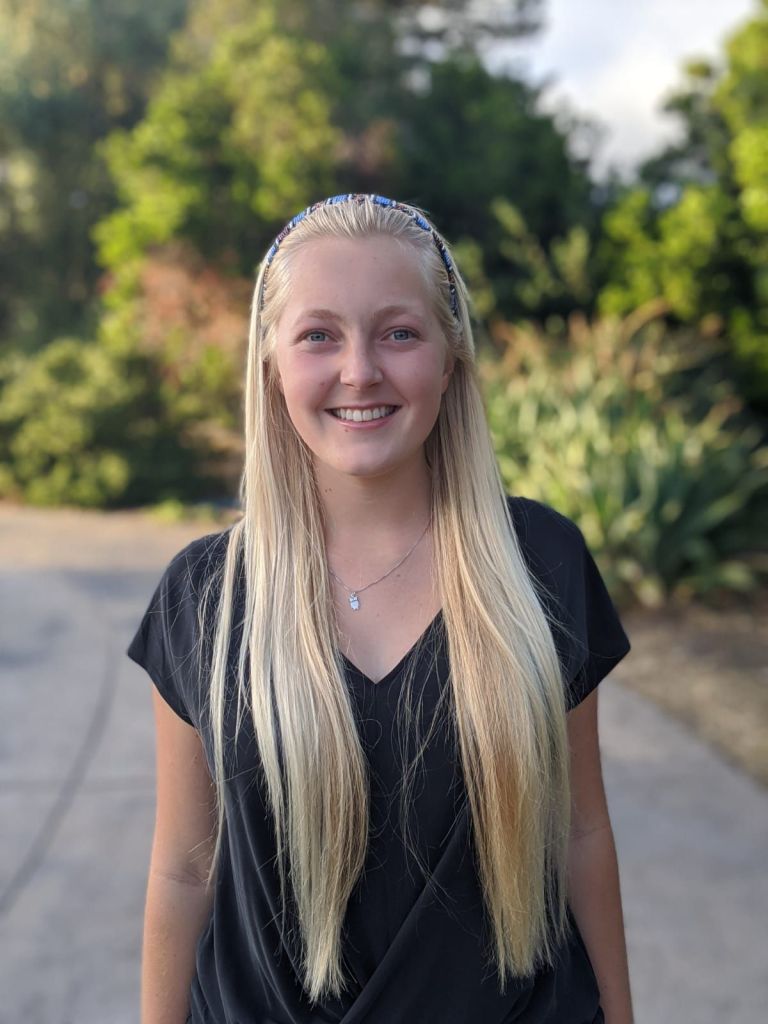
This story was produced as part of the nine-part series “Are We Ready? How Schools Are preparing – and Not Preparing – Children for Climate Change,” reported by HuffPost and The Hechinger Report, a nonprofit, independent news organization focused on inequality and innovation in education.
About two years ago I was sitting in my room scrolling through Instagram, looking at posts of girls with perfect bodies, perfect hair, and perfect smiles. I thought to myself, I should work out more. I should learn how to use makeup. I should dress nicer. I was feeling very insecure about the way my body looked when a video of a girl my age passionately lecturing politicians appeared on my screen.

I didn’t know who Greta Thunberg was at the time, but I was captivated by the way she was describing the climate crisis and how she was explaining the urgency of the situation. Though well mannered, she was furious and insisted that the politicians listen to her. That was the moment that the climate crisis became real to me.
Before I realized that the climate crisis was threatening my future, I associated college with freedom and adventure. I am an artist. I love to sing and paint. I am also interested in psychology and neuroscience. My parents have taught me to explore my passions and to pursue a career where I will find happiness.
However, I cannot help but feel that this mindset is now a luxury. How can I study to be a dancer while hundreds of thousands of lives are lost to the effects of global warming each year? I feel like I have no choice but to pursue an education and career path that will arm me with the weapons I need to fight this “global war.”
The only responsible path is the straightest one to saving the planet. Right now, I feel terrified. I have to fight a war and know very well that it will take everything I have.
“Before I realized that the climate crisis was threatening my future, I associated college with freedom and adventure.”
If I want a future, I have to fight for it. If I want to explore my passions, I have to win the war first. I am currently a junior at San Luis Obispo High School in California and I will begin applying to colleges this fall. My dream colleges are those that are leaders in environmentalism.
Are We Ready?
This nine-part series explores how we’re teaching through climate change. We report on how climate change emergencies are disrupting student learning, exacerbating mental health problems, devastating school infrastructure, and how the coronavirus pandemic is a preview of what education looks like in a climate emergency. We also look at how textbooks are coming up short in teaching kids about climate, how medical schools are preparing future doctors, and how despite the obstacles some educators are finding ways to give students skills they need to better protect themselves and their communities.
I am exploring majors including environmental law, environmental engineering, renewable energy management, sustainability, and marine biology. I am also researching gap year programs focused on environmental volunteerism like Amigos de las Américas to help me understand where my skill set will be most effective. Since I am going to dedicate my future to the planet, I want to choose the most impactful path.
Before the coronavirus closed my school in March, I always had my hand up in class ready to answer a question and was usually able to incorporate some climate education into the answer. When given assignments where I could choose the topic, I chose the climate crisis.
I joined a community of activists and participated in climate strikes and protests. I transitioned from vegetarianism to veganism when I learned that it is the most environmentally friendly diet. I attended San Luis Obispo Unified School District Board of Trustees meetings with a few other students and we successfully convinced the board to create a sustainability advisory committee.
I continue to advocate for the planet whenever I have the opportunity, however, I seldom am met with a positive response. Instead, reactions range from denial to anger. Even when feedback is not negative, students are often unfamiliar with the issue and are rarely interested. My peers ask me why I care so much about the weather and why I’m passionate about saving a few trees.
Recently, I was in English class and we were analyzing a letter written by Eleanor Roosevelt. Our teacher asked us whose letters students would be studying two hundred years from now. I raised my hand and answered that I thought Greta Thunberg’s speeches would be studied because if humans are still around in 200 years, it will be because of the awareness and passion she brought to the global climate crisis.
The classroom was silent as people looked at each other in obvious confusion. Even my teacher, who is usually up to date and interested in current events, hadn’t heard of her and asked me to explain. I told the class what she stands for and what she does. He asked me, “How does it make you feel that no one has heard about Greta Thunberg?” I told him that it scared me.
Even though lack of awareness is frightening, it is nothing compared to the feeling of hopelessness when engaging with a climate denier. One of my first, and most memorable encounters with a climate denier occurred in a math class at my school. My teacher had allowed me to put a flyer on his board advertising an upcoming climate rally.
Before I could finish taping the flyer to the whiteboard, I heard a voice behind me ask, “So you’re going to another tree-hugging party?” The student then proceeded to explain to me that the climate crisis was a hoax and that the Earth’s rising temperature was part of a natural cycle. “There is nothing to worry about,” he told me. “You’re just wasting your time.”
“My peers ask me why I care so much about the weather and why I’m passionate about saving a few trees.”
Views like this do not anger me; they terrify me. I know that for humanity to survive, people must believe the science that proves global warming is an imminent threat to our survival. In 2017, the World Health Organization estimated that hundreds of thousands of people will die each year due to climate change. United Nations scientists have concluded that we have until 2030 to drastically reduce our impact on the environment.
If we succeed, it will not be because a few passionate activists dedicated their lives to the environment. We will succeed because everyone fought regardless of political or religious beliefs. When I hear comments like “You are wasting your time” and “There is nothing to worry about,” I feel like who I am and what I do is pointless.
Unfortunately, there is no sense of urgency among my immediate peers with regard to the future of our planet. The only students I know who are basing their college and career plans on the state of our planet are those who have a history of interest in the environment. I hope this will change. There’s some evidence to suggest young people may be inspired to shift their plans for the future if they become acquainted with climate change.
The U.N. agency UNESCO found that students at schools that participated in a two-year pilot program on climate change education were more likely to say they wanted to study science, math and engineering. Some colleges are adding programs in fields like coastal restoration to help mitigate the impact of climate change. In recent years, jobs in sustainability have grown. I look forward to meeting more fighters and reaching out to those who are unaware, and hopefully changing the minds of a few climate deniers along the way. While the idea of a dying planet is easier to ignore than to imagine, my dream is that collectively we will decide that we can make a difference.

